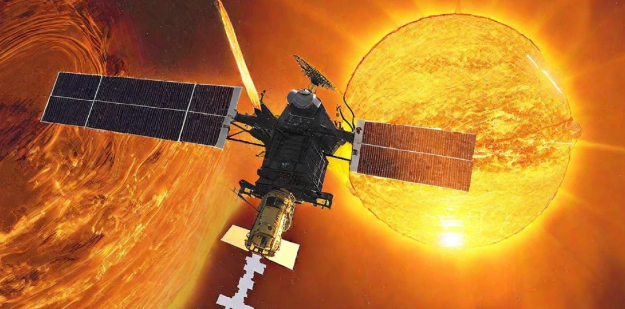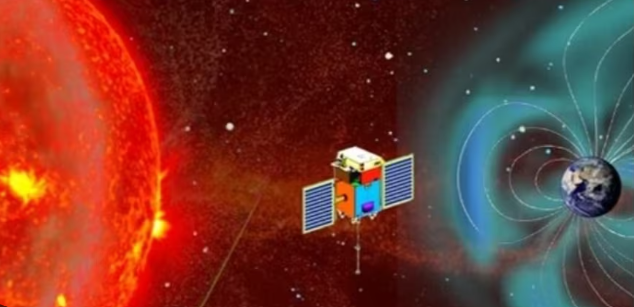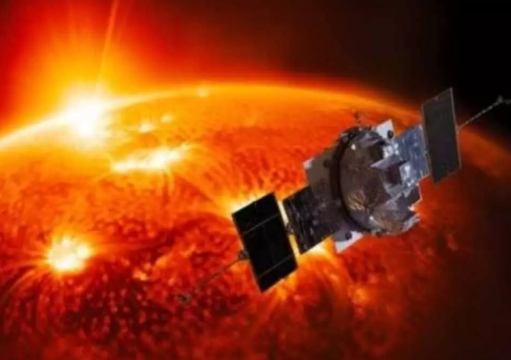
Aditya L1’s Soar to Success: Navigating Challenges on Its Journey to the Final Orbit
Aditya L1 Solar Mission: A Conversation with Former ISRO Scientist Manish Purohit
In a groundbreaking mission, the Indian Space Research Organisation (ISRO) is poised to conduct a crucial manoeuvre on Saturday, propelling the Aditya L1 spacecraft into its designated orbit around 15 lakh kilometres away from Earth. To unravel the intricacies of this historic solar mission, HT Digital engaged in a conversation with Manish Purohit, a former ISRO scientist and the founder of NIMBUS Education. With expertise in critical space missions like Chandrayaan-2 and Mangalyaan, Purohit provided insights into the challenges, milestones, and the future outlook of the Aditya L1 mission.
Crucial Milestones and Challenges During Aditya L1’s Journey
The journey of Aditya L1 spans 127 days, during which several crucial milestones and challenges were encountered:
- September 19: Aditya L1 executed a manoeuvre to overcome Earth’s gravity and move towards the Lagrangian point.
- October 6: The spacecraft adjusted its course using thrusters to ensure it followed the correct path to the Lagrangian point.
- Constant Observation: As the solar probe moved away from Earth, collaboration with ground stations from the European Space Agency was vital for tracking its position and speed.
- Specialized Software: Precision in Aditya L1’s movements was ensured through specialized software, facilitating well-planned events like placing it in the Lagrangian point 1 halo orbit.
ISRO’s Strategy for Achieving the Final Orbit on Saturday
Drawing a comparison with Chandrayaan-3, Purohit elucidated ISRO’s strategy for positioning Aditya L1 into its final orbit:
- Translunar Injection: Similar to Chandrayaan-3, Aditya L1 orbited the Earth to elevate its orbit.
- Gravity Capture Maneuver: A 180-degree flip was performed to slow down the spacecraft, ensuring it would be captured by the void around the L1 point. This critical maneuver, lasting only a few seconds, involves waking up the motors from hibernation due to the cold space environment.
Challenges in Aditya L1’s Special Halo Orbit and Potential Outcomes
- Complex Orbit Dynamics: Aditya L1 faces unique challenges in its halo orbit due to its convoluted nature, revolving around the dynamically moving L1 point, adding complexity to the spacecraft’s orbital control.
- Control Moment Gyros: To counter instability, control moment gyros are utilized to balance the spin, contributing to altitude and orientation maintenance.
- Collision Avoidance: Meticulous planning is essential to navigate Aditya L1’s orbit and prevent collisions with other missions or spacecraft.
-

Aditya L1
Scenario if Aditya L1 Misses Its Intended Orbit
Purohit likened a deviation in A- L1 ‘s intended orbit to Russia’s Luna 25 glitch, emphasizing the risk of missing gravity capture and potentially entering a higher orbit. Precision is paramount to conserve fuel for future operations and experiments.
The Ultimate Goal of the Aditya L1 Mission
Beyond warnings about space weather, Aditya L1’s mission holds the key to understanding the sun’s dynamics, providing valuable data for academia and showcasing India’s space exploration capabilities. The spacecraft’s unique position at the L1 point acts as an early warning system for high-energy radiation or particles emitted by the sun, crucial for various applications, including disaster warning systems and earth observation.
As Aditya L1 embarks on this pioneering mission, it not only represents a scientific endeavor but also symbolizes India’s advancement in space exploration and its commitment to contributing to our understanding of the cosmos.
Unveiling the Potential Impact and Legacy of Aditya L1
The Aditya L1 mission, with its ambitious objectives and careful navigation through space, holds the promise of transformative impacts in various realms. As we delve deeper into the potential outcomes and legacy of this mission, several significant aspects come to the forefront.

Advancing Space Weather Understanding
At the heart of Aditya L1’s mission is the quest to comprehend space weather and its implications for Earth. The spacecraft, stationed at the L1 point, provides a vantage point for monitoring the sun’s activities. With an early warning system in place, scientists can anticipate and prepare for solar events such as high-energy radiation or particle emissions. This capability is crucial for safeguarding space assets, including satellites and other technological infrastructure, from the adverse effects of space weather.
Enhancing Disaster Preparedness
The real-time data and insights gathered by Aditya L1 contribute to disaster warning systems. In the event of solar disturbances that could impact communication networks, power grids, and other critical infrastructure, the mission acts as a sentinel, offering valuable lead time for preparedness and mitigation measures. This aspect aligns with India’s commitment to bolstering disaster resilience and response capabilities.
Empowering Earth Observation and City Planning
In an era where satellite missions play a pivotal role in Earth observation, A- L1’s contributions extend beyond space weather monitoring. The data it collects enhances our understanding of Earth’s environment, aiding in urban planning, environmental monitoring, and resource management. The mission’s legacy could pave the way for more integrated and comprehensive approaches to harnessing space-based information for sustainable development.
Showcasing India’s Technological Prowess
Aditya L1 represents not just a scientific mission but a testament to India’s technological capabilities in space exploration. The successful execution of complex maneuvers, precision control, and the ability to address challenges in real-time underscore the country’s standing in the global space community. This accomplishment adds to India’s legacy in space exploration, building confidence in its ability to take on increasingly sophisticated missions in the future.
Contributing to Academic Research
Beyond its practical applications, A- L1’s mission contributes valuable data to academia. Researchers and scientists have an opportunity to delve into the intricacies of space weather, furthering our knowledge of the sun’s behavior and its influence on the solar system. The mission’s findings may pave the way for new discoveries and insights, enriching the global scientific community’s understanding of celestial dynamics.
Inspiring Future Space Endeavors
The successful execution of Aditya L1 sets the stage for future space exploration endeavors. As India continues to make strides in its space program, the achievements and lessons from this mission will serve as a foundation for planning and executing more ambitious projects. The mission’s success inspires the next generation of scientists, engineers, and space enthusiasts, fostering a culture of innovation and exploration.
In conclusion, A- L1 transcends its immediate objectives and establishes itself as a beacon of scientific achievement, technological prowess, and global collaboration. As the spacecraft maneuvers into its final orbit, the impact of this mission on space exploration, disaster preparedness, and academic research reverberates, leaving an indelible mark on India’s journey into the cosmos.
For the latest updates-click here.


